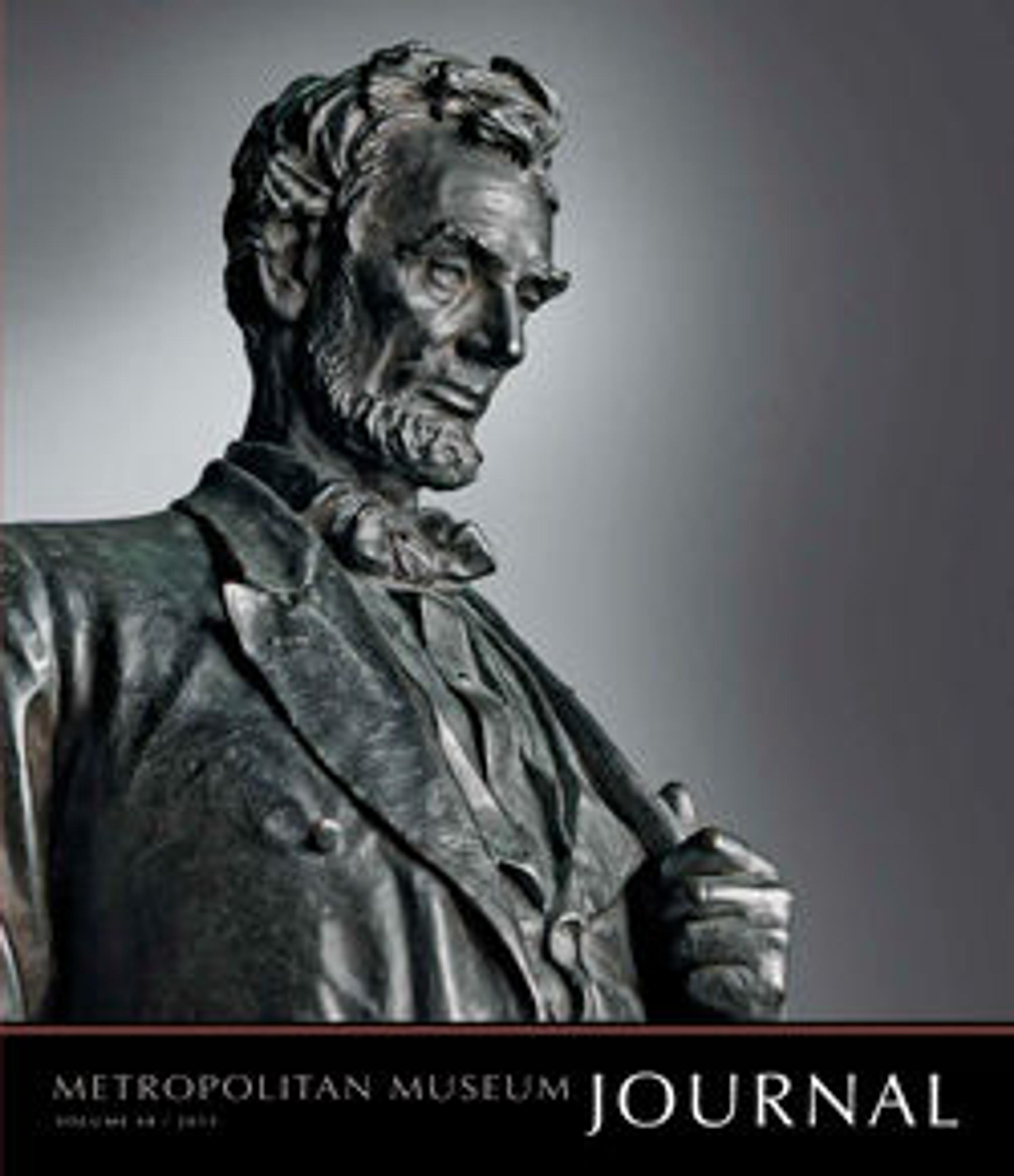Terracotta volute-krater (vase for mixing wine and water)
On the body, obverse, assembly of gods above Amazonomachy
Reverse, youth in naiskos (shrine) between youths and women
On the neck, obverse, woman with torches leading Nike in chariot
On the handles, heads of Io and young Pans
The Capodimonte Painter was a follower of the Baltimore Painter, one of the most prolific late Apulian artists. Although they produced vases of diverse shapes and
sizes, these artists are associated most often with large works virtually the whole surface of which is decorated. The vase becomes a kind of compendium of iconography and patternwork. It is important to recall that antiquarians of the eighteenth century first encountered Greek vasepainting in examples such as this one, discovered in 1785 and acquired by the king of Naples for his palace at
Capodimonte. Although imperfectly understood, the vases were recognized as ancient and impressive; they quickly became objects of study and acquisition.
Reverse, youth in naiskos (shrine) between youths and women
On the neck, obverse, woman with torches leading Nike in chariot
On the handles, heads of Io and young Pans
The Capodimonte Painter was a follower of the Baltimore Painter, one of the most prolific late Apulian artists. Although they produced vases of diverse shapes and
sizes, these artists are associated most often with large works virtually the whole surface of which is decorated. The vase becomes a kind of compendium of iconography and patternwork. It is important to recall that antiquarians of the eighteenth century first encountered Greek vasepainting in examples such as this one, discovered in 1785 and acquired by the king of Naples for his palace at
Capodimonte. Although imperfectly understood, the vases were recognized as ancient and impressive; they quickly became objects of study and acquisition.
Artwork Details
- Title: Terracotta volute-krater (vase for mixing wine and water)
- Artist: Attributed to the Capodimonte Painter
- Period: Hellenistic
- Date: ca. 320–310 BCE
- Culture: Greek, South Italian, Apulian
- Medium: Terracotta; red-figure
- Dimensions: H. without handles: 36 1/16 in. (91.59 cm)
- Classification: Vases
- Credit Line: Fletcher Fund, 1956
- Object Number: 56.171.63
- Curatorial Department: Greek and Roman Art
More Artwork
Research Resources
The Met provides unparalleled resources for research and welcomes an international community of students and scholars. The Met's Open Access API is where creators and researchers can connect to the The Met collection. Open Access data and public domain images are available for unrestricted commercial and noncommercial use without permission or fee.
To request images under copyright and other restrictions, please use this Image Request form.
Feedback
We continue to research and examine historical and cultural context for objects in The Met collection. If you have comments or questions about this object record, please contact us using the form below. The Museum looks forward to receiving your comments.
